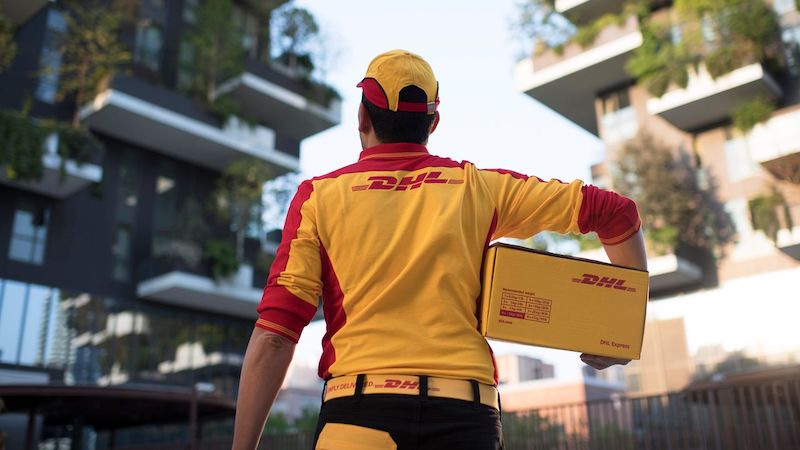Grow your business with the Discover newsletter
Logistics advice & insights straight to your inbox
Subscribe now
As a Singaporean business owner looking to expand overseas, South Korea is an excellent export destination to consider. The latest official statistics from the Korean Customs Service reported that South Korea imported US$1.9 billion worth of goods from Singapore as of mid-March 2023. Importing into any country requires a formal process of entry, one of which is the payment of import tax.
Below, we outline what you need to know about South Korea’s import tax.
Before we dive into the details, it’s helpful to gain an understanding of the three primary customs tariffs in South Korea:
General customs tariff applies to goods not covered by the other two tariffs listed below. This means imported goods in South Korea must pay all applicable duties and taxes.
Preferential tariffs are given to countries that have signed a Free Trade Agreement (FTA) with South Korea. Goods under the FTA are divided into:
Immediate tariff reduction: This is a complete elimination of tariffs as soon as the FTA takes effect.
Staging reduction: This involves gradually reducing tariffs over a specified period of time.
Non-scheduled products with fixed duty rate: This refers to goods that are not included in the staging reduction and are subject to a fixed duty rate.
Under the Korea-ASEAN FTA, goods originating from Singapore, an ASEAN country, are categorised as:
Normal track: This covers goods with zero tariffs.
Sensitive list: This includes goods with tariffs that will be reduced over a period of time.
Highly sensitive list: This covers goods with tariffs that will remain unchanged.
When a country that has signed an FTA with South Korea exports a sensitive product that retains its non-scheduled or high duty rate, South Korea will clear the goods at the same rate even though the FTA indicates a tariff elimination. This is referred to as a reciprocal tariff, which is only applicable to countries under the Korea-ASEAN FTA agreement.
If you're planning to import goods into South Korea from Singapore, making accurate payments of import duties and taxes will ensure there are no delays at customs. The value to pay is determined by the Harmonised System (HS) code, a goods classification tariff schedule that enables customs to apply duty accordingly. On average, South Korea’s import duty is 8% of the value of your goods, with differences in rates applied to items like seafood, clothing and tobacco.
In addition to import duty, South Korea imposes a standard Value Added Tax (VAT) of 10% on all imports. This is a consumption tax levied at each stage of production. This is the equivalent of what is called the Goods and Services Tax (GST) in Singapore. In addition to the VAT, certain luxury and durable consumer goods draw an excise duty of between 10% and 20%. Alcohol imports are subject to liquor tax; beer, for instance, is taxed at 72% per litre.
The following items are exempt from import duty in South Korea:
Goods received by a domestic resident for personal use which are valued at US$150 and below
Goods recognised as commodity samples valued at US$250 and below
Goods recognised as promotional materials or items to be handed out to visitors for free during exhibitions or any equivalent event as long as the value per visitor is pegged at a maximum of US$5 per visitor.
It’s also helpful to know that with the signing of the Korea-Singapore Free Trade Agreement (KSFTA), 91.6% of Singapore’s exports to Korea enjoy tax exemptions, so local businesses can save on duty costs when exporting to South Korea.

The consignor of the goods imported or the individual liable for tax payment, must pay the import tax in South Korea. Generally, all payments must be completed on each transaction or lump sum within a stipulated time.
For a smooth payment and customs clearance experience, you must first declare:
Accurate HS codes, their individual customs value according to the tariff schedule and total taxes payable as a result
Duty exemptions under the respective Customs Act or FTA
Any special relationships between the sender and receiver that can impact payment
Other factors that will influence tax value
Once your duty payment is accepted, you will be issued a bill of duty payment, which you must clear within the next 15 days. This is pursuant to Article 9-1 of the Customs Act.
Exemptions may apply, such as when there is a need to correct your payment declaration or if you have requested deferments or instalments.
All payments will be made via South Korea’s e-clearance system called UNI-PASS, designed for seamless and efficient fulfilment of duties and taxes. Supporting this paperless trade infrastructure are a series of intuitive payment methods, such as internet banking and credit card.
If you’re a new business, navigating customs duties and payment can be tricky when importing and exporting goods across borders. For enterprises, carefully overseeing such transactions is important for overall financial health. We understand that businesses like yours require streamlined services that make this part of the trade swift and hassle-free. When you partner with us, you’ll enjoy the benefits of being an account holder with DHL Express while you export from Singapore to South Korea and beyond.
Let us seamlessly integrate our platform with yours, so you can leverage our tech tools and leave all your queries to our helpful team of specialists. Discover invoice creation, customs value calculation and more with MyDHL+, and offer your customers a comfortable and trusting delivery experience with our safe and efficient services featuring Time-Definite options alongside same-day shipping and on-demand delivery.
Sign up for a DHL Express business account and explore the benefits today!